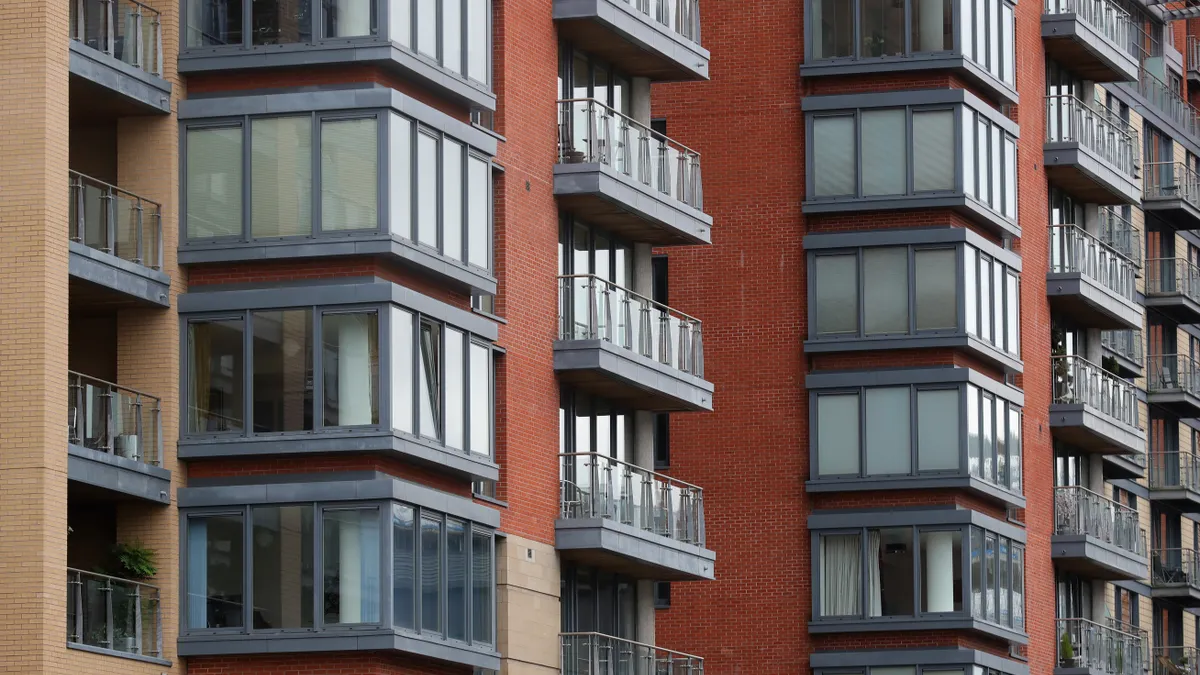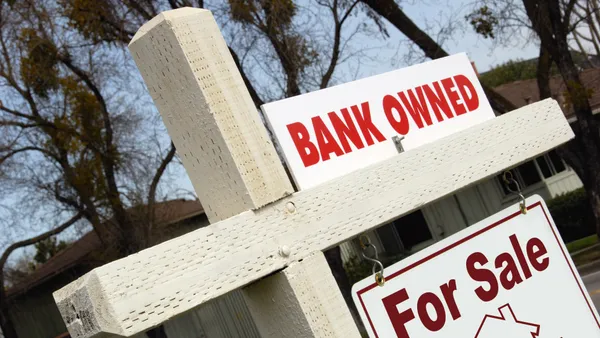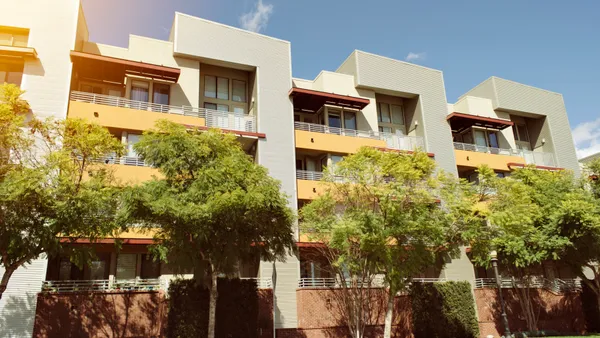Dive Brief:
- With increasing interest rates, decelerating rent growth and recession concerns, there are some signs that more apartment owners aren’t making payments, leading to increasing delinquency rates.
- Multifamily commercial mortgage-backed securities delinquencies jumped 98 basis points from October to November to 1.81%, according to Trepp. However, that was driven by problems with a couple of large loans, including the one backing the 538-unit Parkhill City apartments in Queens, New York, according to Trepp. Overall, the commercial real estate rate sat at 2.99%.
- The third quarter Mortgage Bankers Association’s latest Commercial/Multifamily Delinquency Report showed that delinquency rates remained low overall. Loans that were 60 or more days delinquent for Fannie Mae decreased by 0.08 percentage points from the second quarter to 0.26%. However, those loans increased by 0.06 percentage points to 0.13% for Freddie Mac.
Dive Insight:
The MBA evaluates commercial and multifamily delinquency rates for commercial banks and thrifts, commercial mortgage-backed securities, life insurance companies and Fannie Mae and Freddie Mac. Together, these five groups hold more than 80% of the outstanding commercial and multifamily mortgage debt.
For the entire commercial real estate universe, bank and thrift delinquencies decreased 0.05 percentage points to 0.44%, life company delinquencies increased 0.05 percentage points to 0.09% and CMBS delinquencies dropped 0.18 percentage points to 2.77%.
The share of bank-held CRE loan balances that were delinquent was only lower once in the MBA’s 30-year history of measurement, just before the onset of the COVID-19 pandemic.
However, volatility in the capital markets and a potential recession could produce more difficulty in the near future. “The conditions that pushed delinquency rates to these near-record lows have been shifting and we expect to see some stress work its way back into some loans,” said Jamie Woodwell, MBA’s head of commercial real estate research, in a press release. “Very slight increases during the third quarter in the delinquency rates of life company and Freddie Mac loans may signal the beginning of these trends.”
More distesss?
Some apartment investors see increasing delinquencies as a sign that distressed properties could be hitting the market. For example, some of the debt fund loans that relied on significant rent growth and were underwritten at significantly lower rates could face issues, according to Dan Brendes, senior vice president and head of GSE Lending at New York-based commercial real estate services firm Berkadia.
“It depends on when they did the deal and what kind of growth they had,” Brendes told Multifamily Dive. “But if they got into it late with fairly aggressive assumptions, that could be an opportunity for distressed buyers.”
But Brendes doesn’t expect widespread issues. “We'll see how that plays out,” he said. “A lot of that business still does have extensions available to it. Some of that will bring in new capital, potentially. But some of it will be an opportunity for buyers to come into a distressed situation.”
Click here to sign up to receive multifamily and apartment news like this article in your inbox every weekday.











